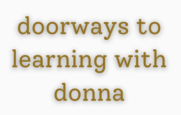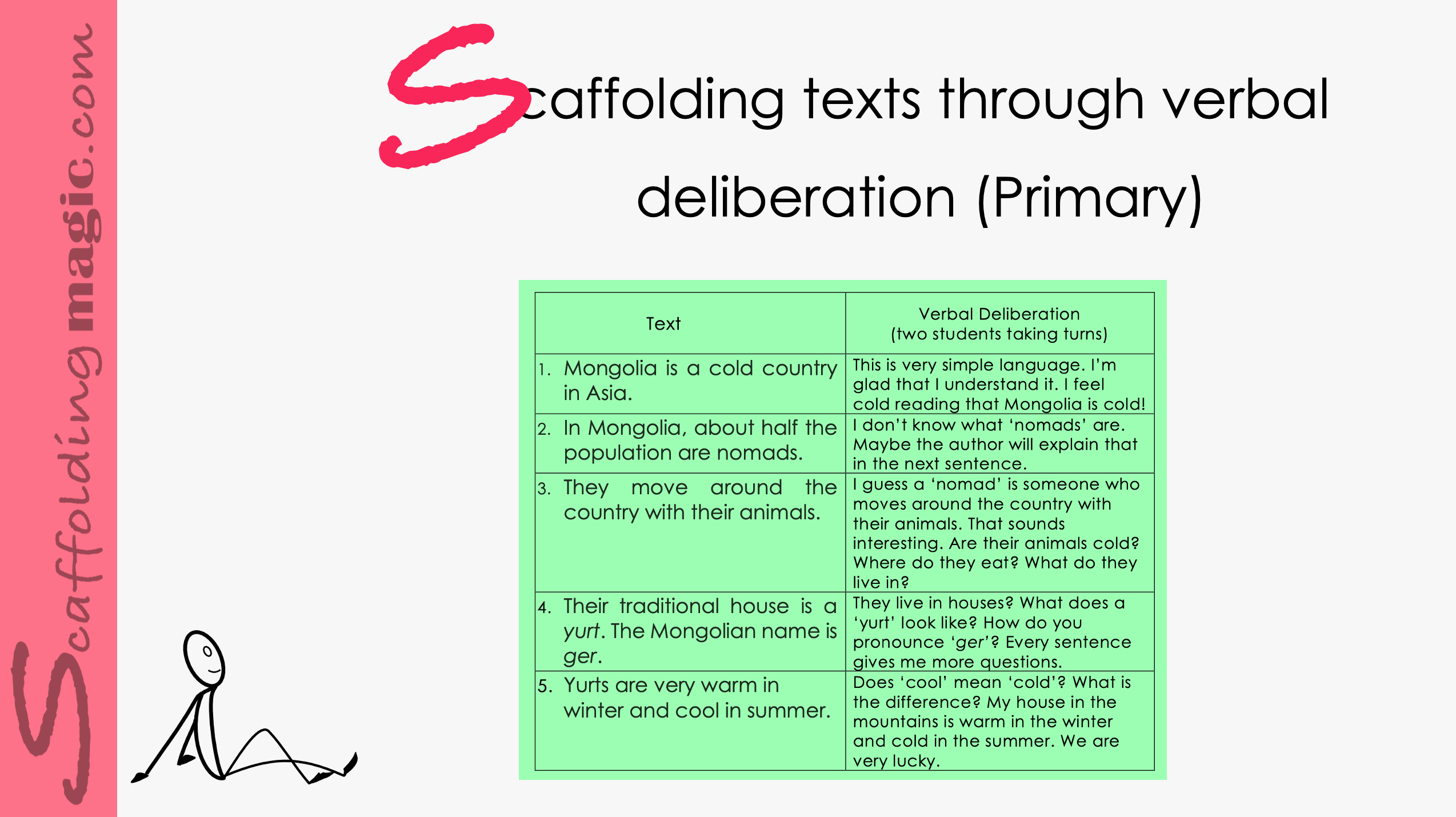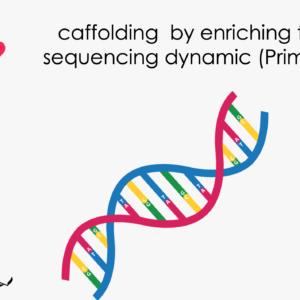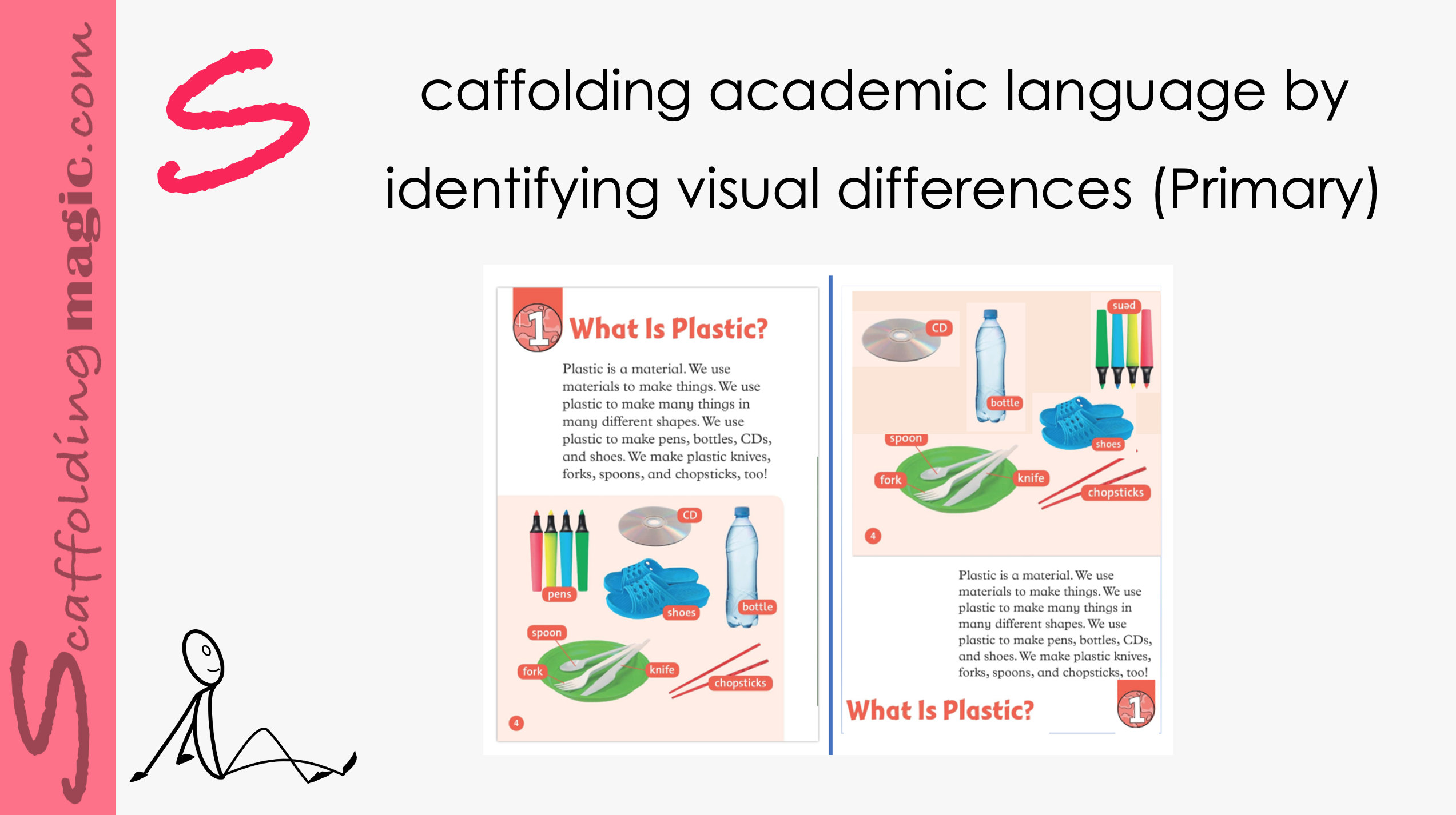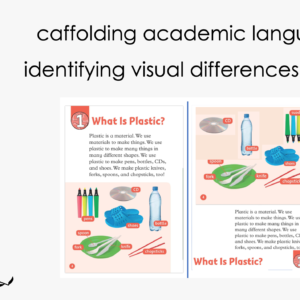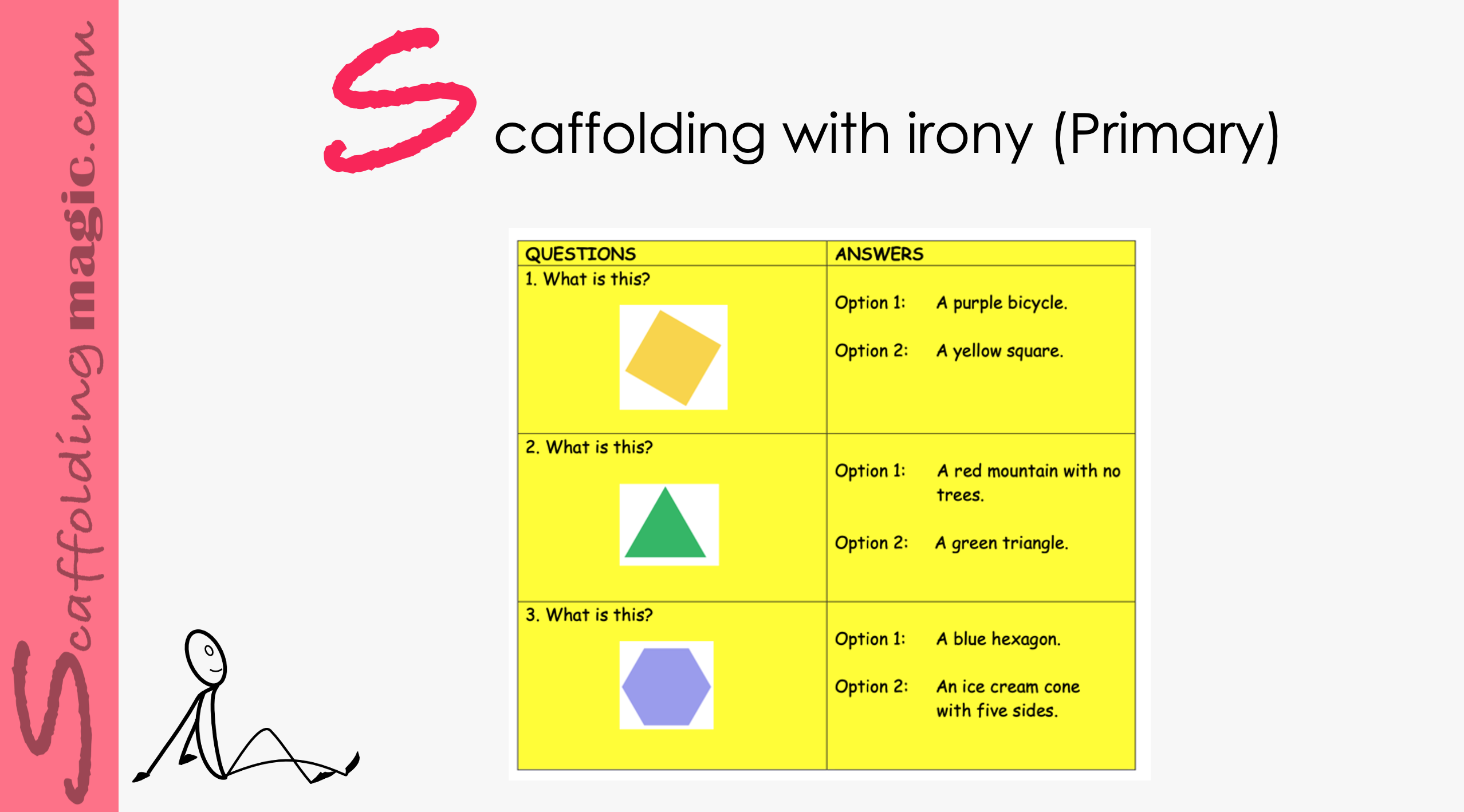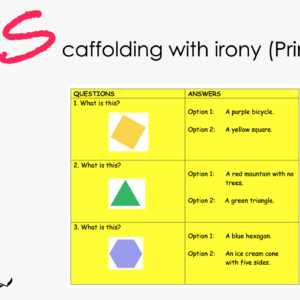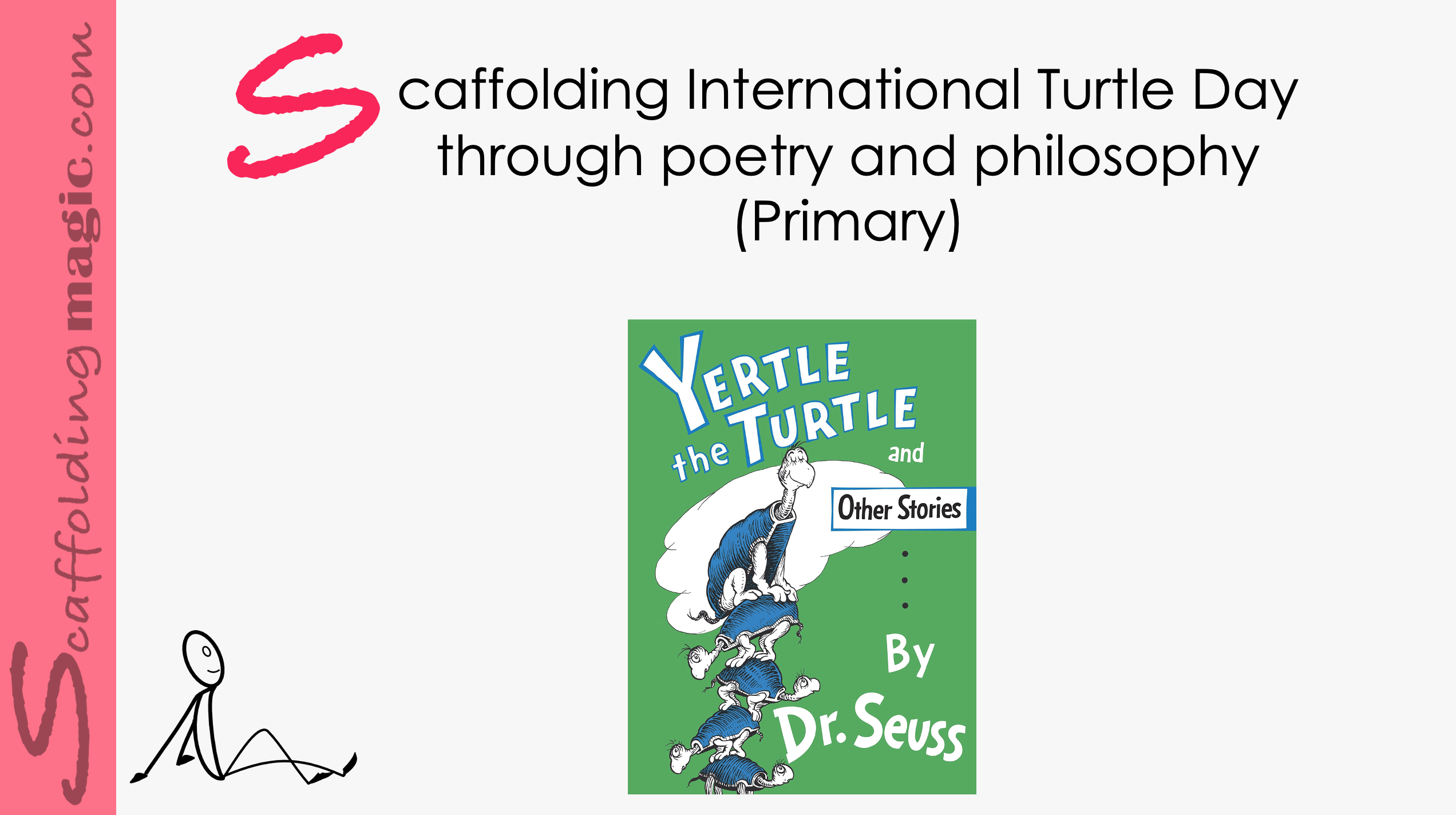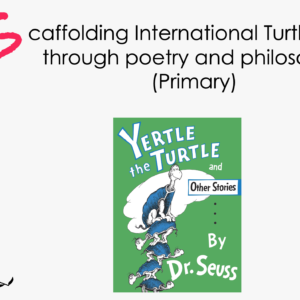This scaffold helps students to become personally involved in whatever text they are asked to read. The technique includes using verbal reasoning to aid in the reading of new material – so that the reader has the opportunity to build a mental representation of the text through critical thinking and deliberation. The active dialogue while reading helps students to maintain active nodes (that might otherwise be passive), and the construct of knowledge then becomes stronger and can be accessed longer.
Scaffolding Texts through Verbal Deliberation (Primary)
$5.00
This scaffold helps students to become personally involved in whatever text they are asked to read. The technique includes using verbal reasoning to aid in the reading of new material – so that the reader has the opportunity to build a mental representation of the text through critical thinking and deliberation. The active dialogue while reading helps students to maintain active nodes (that might otherwise be passive), and the construct of knowledge then becomes stronger and can be accessed longer.
Related products
-
Primary ScaffoldsQuick View
Scaffolding by Enriching the Sequencing Dynamic (Primary)
$5.00 Add to cartRated 0 out of 5 -
Primary ScaffoldsQuick View
Scaffolding Academic Language by Identifying Visual Differences (Primary)
$5.00 Add to cartRated 0 out of 5 - Quick View
- a children’s book writer…
- a poet…
- a poet…
- a children’s book writer…
- a poet…
-
Primary ScaffoldsQuick View
Scaffolding International Turtle Day through Poetry and Philosophy (Primary)
$5.00 Add to cartRated 0 out of 5
Scaffolding by Enriching the Sequencing Dynamic (Primary)
Sequencing is a concept that needs to be repeated throughout the education process. We need to intentionally give our students the opportunities to be able to recognise and express sequences, and we need to provide the phrases they can use to clarify the ordering of events. It might be motivating to know that studies show that students are able to recall information more accurately if they´ve been schooled in sequencing.
The art of ordering is a skill that requires critical thinking as it obligates the students to see both sides of an issue, be open to new evidence, and deduce and infer conclusions from available facts.* Inferential reasoning enables students to construct new knowledge by considering, connecting past knowledge to new. If we want to delve into the biology of the skill, you might be interested to know that the dynamic activates the hippocampus, which is the part of the brain responsible for retaining short-term, long-term and spatial memory. So, the more we give students the opportunity to develop this part of the brain, the more we are aiding them in strengthening neuron connections.
Sequencing is a concept that needs to be repeated throughout the education process. We need to intentionally give our students the opportunities to be able to recognise and express sequences, and we need to provide the phrases they can use to clarify the ordering of events. It might be motivating to know that studies show that students are able to recall information more accurately if they´ve been schooled in sequencing.
The art of ordering is a skill that requires critical thinking as it obligates the students to see both sides of an issue, be open to new evidence, and deduce and infer conclusions from available facts.* Inferential reasoning enables students to construct new knowledge by considering, connecting past knowledge to new. If we want to delve into the biology of the skill, you might be interested to know that the dynamic activates the hippocampus, which is the part of the brain responsible for retaining short-term, long-term and spatial memory. So, the more we give students the opportunity to develop this part of the brain, the more we are aiding them in strengthening neuron connections.
Scaffolding Academic Language by Identifying Visual Differences (Primary)
Studies show that while memorising academic language is effective in the short term – to pass exams, for instance, in the long-term it is an ineffective way of learning terms that students can use in context*. Without having analysed, compared, categorised, and defended their own ideas through the use of these terms, most students will forget their meanings as quickly as they learned them.
What can we do? The solution is easy. We create opportunities for our students to analyse, compare, categorise, and defend their own ideas through the use of these terms.
Scaffolding with Irony (Primary)
Adding humour to a lesson is always a recipe for success. Humour changes the dynamic of the class and helps students to see their lessons with a different frame of mind. This scaffold uses irony – the highest form of humour – to help make potentially dry material more inviting and accessible.
The use of humour is engrained in our cultural perspectives. Edward T. Hall, one of the pioneers of cultural studies for the purpose of preparing us for and appreciating the differences in peoples across the globe, elucidates the varying uses of humour in different environments. American humour, for instance, is binary and is either present or absent. In the Far East, on the other hand, one encounters a wide spectrum of subtle degrees of humour that are commonly present.*
Adding humour to a lesson is always a recipe for success. Humour changes the dynamic of the class and helps students to see their lessons with a different frame of mind. This scaffold uses irony – the highest form of humour – to help make potentially dry material more inviting and accessible.
The use of humour is engrained in our cultural perspectives. Edward T. Hall, one of the pioneers of cultural studies for the purpose of preparing us for and appreciating the differences in peoples across the globe, elucidates the varying uses of humour in different environments. American humour, for instance, is binary and is either present or absent. In the Far East, on the other hand, one encounters a wide spectrum of subtle degrees of humour that are commonly present.*
Scaffolding International Turtle Day through Poetry and Philosophy (Primary)
Seriously? A children’s book about turtles is philosophical? Oh yes it is! Theodor Seuss Geisel (Dr. Seuss), was not just a writer of children’s books, but a profound philosopher, a poet, a political advocate (sometimes controversial), and a promoter of critical thinking on all levels.
